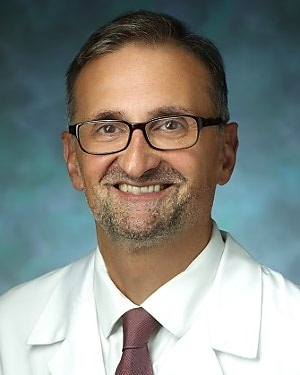Research Lab Results
-
Psychiatric Neuroimaging
Psychiatric Neuroimaging (PNI) is active in neuropsychiatric research using imaging methods such as MRI, fMRI, PET and DTI to understand the mechanisms and brain networks underlying human cognition. PNI faculty have published hundreds of papers on a variety of brain disorders which include but are not limited to Alzheimer's disease, Parkinson's disease, bipolar disorder, and eating disorders. Faculty in the division have been awarded numerous peer-reviewed grants by the National Institutes of Health, foundations and other funding organizations.
-
Amita Gupta Lab
The Amita Gupta Lab focuses on drug trials to prevent and treat HIV, tuberculosis (TB) and other co-morbidities in adults, including pregnant women and children who reside in low-income settings. We also conduct cohort studies assessing HIV, inflammation and nutrition in international settings; TB in pregnancy; and risk factors for TB in India (CTRIUMPH). We collaborate with several faculty in the Center for TB Research, Division of Infectious Diseases and the School of Public Health.
-
Advanced Optics Lab
The Advanced Optics Lab uses innovative optical tools, including laser-based nanotechnologies, to understand cell motility and the regulation of cell shape. We pioneered laser-based nanotechnologies, including optical tweezers, nanotracking, and laser-tracking microrheology. Applications range from physics, pharmaceutical delivery by phagocytosis (cell and tissue engineering), bacterial pathogens important in human disease and cell division. Other projects in the lab are related to microscopy, specifically combining fluorescence and electron microscopy to view images of the subcellular structure around proteins. -
Brendan Antiochos is a physician scientist in the Division of Rheumatology. His main interest is the role of the innate immune system in the pathogenesis of rheumatic diseases. Current work focuses on the identification of specific endogenous nucleic acids that drive pathogenic innate immune responses in these conditions. More information about his group and work can be found at his lab website.
-
J. Marie Hardwick Laboratory
Our research is focused on understanding the basic mechanisms of programmed cell death in disease pathogenesis. Billions of cells die per day in the human body. Like cell division and differentiation, cell death is also critical for normal development and maintenance of healthy tissues. Apoptosis and other forms of cell death are required for trimming excess, expired and damaged cells. Therefore, many genetically programmed cell suicide pathways have evolved to promote long-term survival of species from yeast to humans. Defective cell death programs cause disease states. Insufficient cell death underlies human cancer and autoimmune disease, while excessive cell death underlies human neurological disorders and aging. Of particular interest to our group are the mechanisms by which Bcl-2 family proteins and other factors regulate programmed cell death, particularly in the nervous system, in cancer and in virus infections. Interestingly, cell death regulators also regulate many other cellular processes prior to a death stimulus, including neuronal activity, mitochondrial dynamics and energetics. We study these unknown mechanisms. We have reported that many insults can trigger cells to activate a cellular death pathway (Nature, 361:739-742, 1993), that several viruses encode proteins to block attempted cell suicide (Proc. Natl. Acad. Sci. 94: 690-694, 1997), that cellular anti-death genes can alter the pathogenesis of virus infections (Nature Med. 5:832-835, 1999) and of genetic diseases (PNAS. 97:13312-7, 2000) reflective of many human disorders. We have shown that anti-apoptotic Bcl-2 family proteins can be converted into killer molecules (Science 278:1966-8, 1997), that Bcl-2 family proteins interact with regulators of caspases and regulators of cell cycle check point activation (Molecular Cell 6:31-40, 2000). In addition, Bcl-2 family proteins have normal physiological roles in regulating mitochondrial fission/fusion and mitochondrial energetics to facilitate neuronal activity in healthy brains.
Principal Investigator
Department
-
Johns Hopkins Fertility Center Research
Research with the Johns Hopkins Division of Reproductive Endocrinology and Infertility (REI) has recently focused on perimenopause and menopause and risks for hot flashes, fertility preservation and on making advances in improving success rates for assisted reproductive technologies. Past research efforts focused on hormonal contraception, prolactin disorders and polycystic ovarian syndrome. -
VISION: To make MRI more equitable and inclusive
MISSION: To develop and deploy MRI tools and methods to enable accessible imaging of underserved populations
-
Greider Lab
The Greider lab uses biochemistry to study telomerase and cellular and organismal consequences of telomere dysfunction. Telomeres protect chromosome ends from being recognized as DNA damage and chromosomal rearrangements. Conventional replication leads to telomere shortening, but telomere length is maintained by the enzyme telomerase. Telomerase is required for cells that undergo many rounds of divisions, especially tumor cells and some stem cells. The lab has generated telomerase null mice that are viable and show progressive telomere shortening for up to six generations. In the later generations, when telomeres are short, cells die via apoptosis or senescence. Crosses of these telomerase null mice to other tumor prone mice show that tumor formation can be greatly reduced by short telomeres. The lab also is using the telomerase null mice to explore the essential role of telomerase stem cell viability. Telomerase mutations cause autosomal dominant dyskeratosis congenita. People with this disease die of bone marrow failure, likely due to stem cell loss. The lab has developed a mouse model to study this disease. Future work in the lab will focus on identifying genes that induce DNA damage in response to short telomeres, identifying how telomeres are processed and how telomere elongation is regulated. -
Cochlear Center for Hearing and Public Health
The Cochlear Center for Hearing and Public Health is dedicated to training clinicians, researchers and public health experts to study and address the impact that hearing loss has on older adults and public health. We aim to make measured local, national and global impacts through a macro level (e.g., public policy legislation), micro level (e.g., programs to deliver hearing care to individuals in a particular community), and everywhere in between (e.g., influential research publications, etc.) to adhere to our center’s overall mission and vision of effectively optimizing the health and function of an aging society and become the premier global resource for ground-breaking research and training on hearing loss and public health. -
CORE-320 Multicenter Trial Lab
The central theme of the CORE-320 Multicenter Trial Lab’s research is to support the Coronary Artery Evaluation Using 320-Row Multidetector CT Angiography (CORE 320) study, a multi-center multinational diagnostic study with the primary objective to evaluate the diagnostic accuracy of 320-MDCT for detecting coronary artery luminal stenosis and corresponding myocardial perfusion deficits in patients with suspected CAD compared with the reference standard of conventional coronary angiography and SPECT myocardial perfusion imaging. Armin Arbab-Zadeh, MD, PhD, is an associate professor of medicine at the Johns Hopkins University School of Medicine and Director of Cardiac Computed Tomography in the Division of Cardiology at the Johns Hopkins Hospital in Baltimore. Research Areas: coronary/cardiac imaging, coronary risk prediction, heart attack prevention, cardiac computed tomography, coronary circulation and disease





